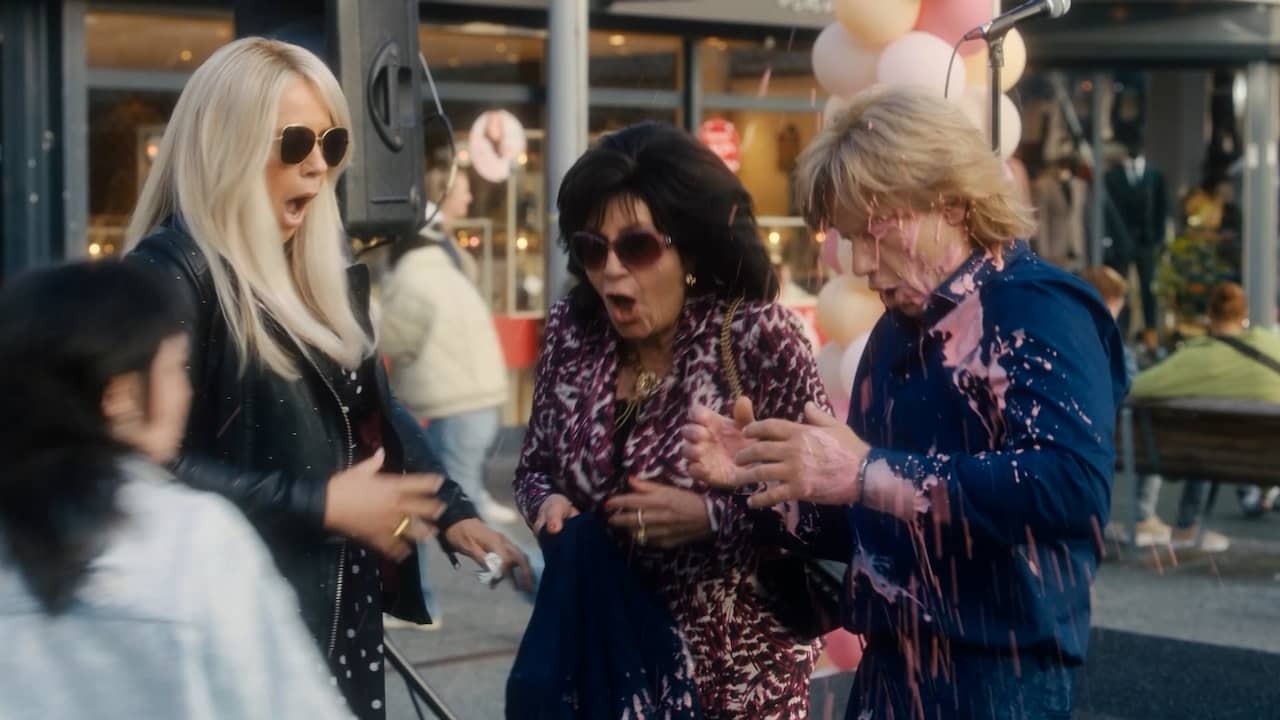
More and more old TV shows are returning to the screen. From Gooische Vrouwen and Flodder to Te Land, Ter Zee En In De Lucht: nostalgia is booming. Why are broadcasters and streaming services now resorting to familiar titles from the past?
Baantjer may return. Earlier this year, Talpa and publisher De Fontein announced that they were in talks about a restart of the popular RTL 4 series, which aired between 1995 and 2006.
Piet Römer played detective De Cock (with C‑O‑C‑K) in it and solved murders in more than 120 episodes. The series attracted an average of one and a half million viewers per episode and won the Golden Televizier-Ring in 1997. In 2019, the prequel Baantjer: het Begin, with Waldemar Torenstra as a young De Cock, appeared on Videoland.
Director and format developer Bas van Teylingen says that it is no coincidence that there is interest in bringing Baantjer back to television: “We live in a time when people are constantly overstimulated,” he tells NU.nl. “There are plenty of problems: war, climate change, inflation… People want safety, warmth and clarity.”
Van Teylingen emphasizes the feeling of nostalgia that these old formats evoke in the viewer. “It’s a bit like a butcher you always go to and who already has your steak ready.”
Nostalgia as a strategy and support
Other titles are also making a comeback. For example, SBS6 breathed new life into Medisch Centrum West last year, more than thirty years after the original TROS series. The iconic Flodder is also returning: filming is currently in full swing. Director Joosje Duk (known from the series Máxima): “In uncertain times, people like to fall back on something familiar. Losing yourself in a series is a form of escapism,” she tells NU.nl.
Another classic that returned to TV is Te Land, Ter Zee En In De Lucht. The former ratings hit of the TROS was revived last year by RTL, with Ruben Nicolai and Gerard Joling as presenters. Van Teylingen was involved in the relaunch. “When you hear a familiar title, you immediately know what to expect,” he says. “In a rapidly changing world, watching something familiar gives peace of mind. Especially if it is a program that you have fond memories of.”
Duk emphasizes that bringing back an old format can also be strategic. “An old hit series offers evidence: it has been successful before. That gives a kind of pseudo-certainty,” she says. “A new idea is always a risk, while with an existing success you know that there is already a fan base.”
Gooische Vrouwen: a successful example
We see that reflected in Gooische Vrouwen. After years of absence, the popular series returned to television. Lead actress Linda de Mol slips back into the role of Cheryl and all the other important characters were also there again. “It is a success because it has remained very close to the original,” explains Van Teylingen. “The same lead actors, the same theme tune, the same feeling.”
Van Teylingen emphasizes that sticking to the original is important. “Sometimes that is possible, but regularly you also have to make things up to date. If you have to adjust too much so that the format fits within the norms and values of today, it is better not to bring the program back.”
According to Duk, there is also a danger in implementing modernization too far. She refers to And Just Like That…, the successor to the popular Sex and the City. “The characters used to be outspoken and imperfect, but in the remake it feels like they have gone too far in moral responsibility,” she says. “That is at the expense of realism and the feeling of the past.”
According to the Máxima director, it’s all about balance: “You have to modernize, but in a way that suits the characters and the original DNA of a format.”
 1:06
1:06
Commercially attractive, but with a clear identity
Old formats are commercially attractive for broadcasters: “It lowers the barrier for viewers to tune in,” says Van Teylingen. “Broadcasters are less willing to take risks these days, because the range is so large. The chance of failure is high.” The new SBS program De Volgers was recently taken off the air after just one episode.
Yet a well-known name is no guarantee of success. When Big Brother returned in 2021, the viewing figures were a lot lower than in the early years. Idols, which returned in 2016, was also scrapped after two seasons. According to Van Teylingen, this is because programs in certain genres also develop. “What was once innovative sometimes feels slow or old-fashioned now.”
According to Duk, a series needs a clear identity to return: “What made the series successful at the time? And can you translate that to now? You have to both remain true to the essence and add something that makes it relevant in this time.”